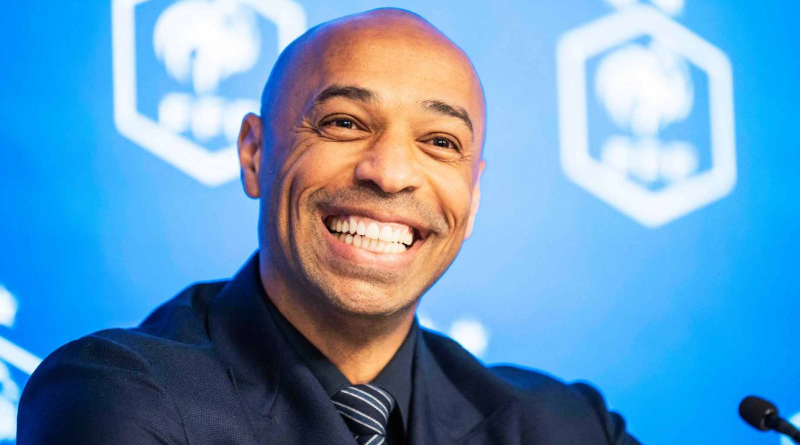“I Suffered Depression During My Playing Career”, Arsenal legend, Thierry Henry
Thierry Henry has admitted he struggled with depression during his playing career.
The France and Arsenal legend told Steven Bartlett in a new interview that he spent his Covid-19 isolation in Montreal ‘crying every day’ and linked his issues back to a traumatic childhood.
Henry, 46, who currently coaches the France under-21 team, said his father Antoine constantly criticised his performances on the football pitch as a child.
Despite winning the 1998 World Cup with France and becoming Arsenal’s all-time leading goalscorer, Henry admits he struggled to find happiness and satisfaction in his accomplishments.
‘Throughout my career, I must have been in depression,’ he told Bartlett’s The Diary Of A CEO show.
‘Did I know it? No. Did I do something about it? Obviously no. But I had adapted in a certain way.
‘I was lying for a very long time because society wasn’t ready to hear what I had to say.’
Henry says he spent his childhood trying to please his father and then his entire playing career trying to please others, comparing it to wearing a ‘cape’.
‘Everything came at once, especially during the Covid time,’ he said.
‘I knew it before but I was lying to myself. I was making sure those feelings weren’t going too far, I put the ‘cape’ on. But when you’re not a player anymore, you can’t put that ‘cape’ on anymore.
‘We tend to run instead of facing our problems, that is what we do all the time. We try to stay busy, we try to avoid the problem or not think about it.
‘Covid happened and I asked ‘why are you running, what are you doing?’ I was isolated and not being able to see my kids for a year was tough. I don’t even need to explain that one.
‘Something like that had to happen to me to understand vulnerability, empathy, crying. Understand that emotions are emotions. Anger is normal but don’t become angry. Jealousy is normal but don’t become jealous.
‘I was crying almost every day for no reason, tears were coming. I don’t know why but maybe they were waiting for a very long time.
‘I don’t know whether that needed to come out. It was weird, but in a good way. There was stuff I couldn’t control and I didn’t try to.
‘You have been told since you’re young, whether at home or in your job, “don’t be that guy, don’t show you’re vulnerable. If you cry, what are they going to think?”
‘I was crying but, technically, it was the young Thierry crying. He was crying for everything he didn’t get.’
Henry recalled a story from when his teenage years when he scored six goals in a 6-0 victory for his junior team and yet his father was still not satisfied.
‘I was 15 and you can already see if someone is good or not good. We won 6-0 and I scored six goals,’ he said.
‘I knew the aura of my dad, I could tell if the man was happy or not.
‘I turned around, I can tell you from any posture whether he was happy or not happy. We arrived in the car, there is silence. I am like, shall I talk or not talk? That was how we were.
‘He said: “Are you happy?” Should I answer? “Yeah”. “Yeah but you shouldn’t be because you missed that goal, missed that cross, whatever.”
‘We arrived at my mum’s house, I’m walking like this [head down] and she asked: “Did you lose?’ It was often like that.”‘
Henry said he had an epiphany when the time came to return to Montreal after he’d spent time with his children once lockdown restrictions had been eased.
It led to him giving up the head coach role with MLS club CF Montreal ahead of the 2021 season.


